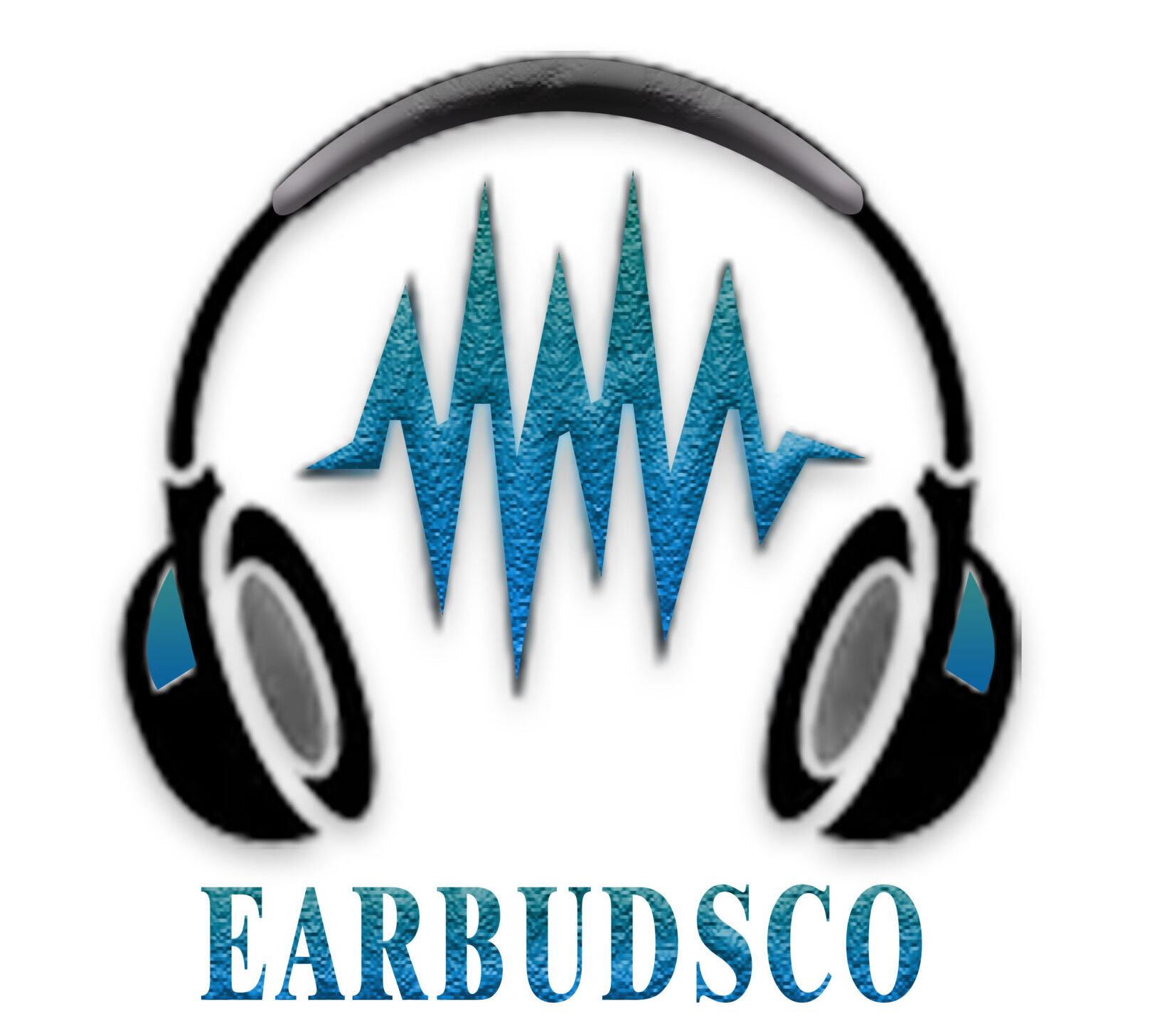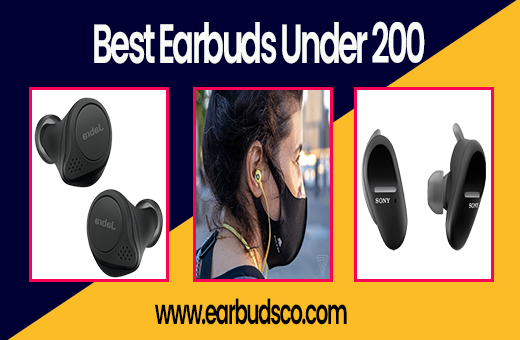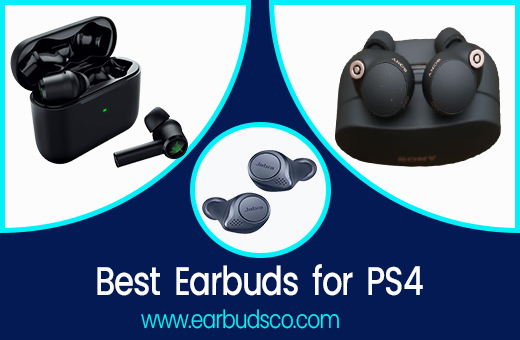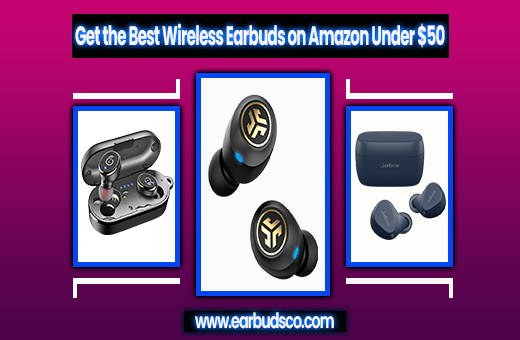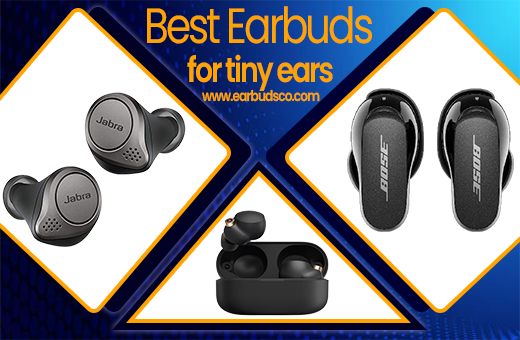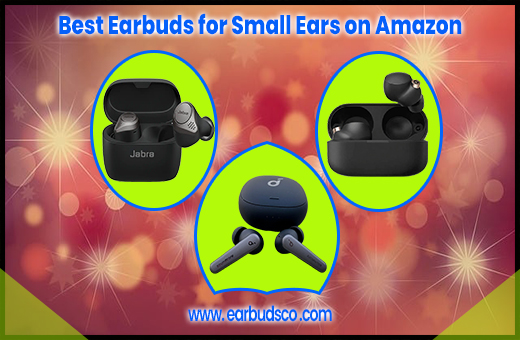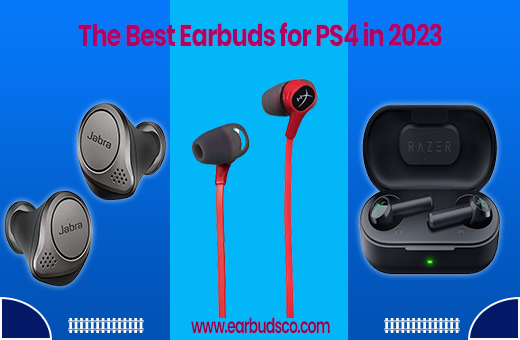Best Earbuds for Tinnitus
Enjoy superior sound quality and improved hearing with the best earbuds for tinnitus relief. Our selection of noise-canceling earbuds helps block out distracting sounds and provides a comfortable listening experience. Discover the perfect pair of earbuds
The Definitive Guide to Finding the Best Earbuds for Tinnitus Relief
Tinnitus is a condition that causes ringing or buzzing in the ears. It can be a frustrating and distracting condition, especially when you’re trying to listen to music or other audio. However, there are earbuds available that can help alleviate the symptoms of tinnitus. Here’s a definitive guide to finding the best earbuds for tinnitus relief:
- Look for earbuds with active noise cancellation (ANC): ANC earbuds work by producing a sound wave that cancels out ambient noise. This can help mask the ringing or buzzing sound of tinnitus. ANC earbuds can also help reduce the need to turn up the volume to hear audio, which can exacerbate tinnitus symptoms.
- Choose earbuds with customizable EQ settings: Customizable EQ settings allow you to adjust the audio frequency response to suit your specific hearing needs. This can help make audio more comfortable to listen to and reduce the risk of worsening tinnitus symptoms.
- Consider earbuds with low latency: Latency is the delay between when audio is played and when it’s heard through the earbuds. High latency can cause audio to be out of sync with the video, which can be a distraction and cause stress on the ears. Look for earbuds with low latency to reduce this issue.
- Check for comfort and fit: Earbuds that fit well and are comfortable to wear can help reduce stress on the ears and reduce tinnitus symptoms. Look for earbuds that come with multiple ear tip sizes to ensure a good fit.
- Choose earbuds with long battery life: Tinnitus can be a chronic condition, so it’s important to choose earbuds with long battery life to ensure you can use them for extended periods without interruption.
- Consider the brand reputation and customer reviews: Look for earbuds from reputable brands with positive customer reviews. This can help ensure that you’re getting a quality product that’s been tested and reviewed by other people with tinnitus.
Some examples of earbuds that may be suitable for tinnitus relief include:
- Bose QuietComfort Earbuds:
Best Earbuds for Tinnitus These earbuds feature ANC, customizable EQ settings, and a comfortable fit.
- Sony WF-1000XM4:
Best Earbuds for Tinnitus These earbuds also feature ANC, customizable EQ settings, and long battery life.
- Jabra Elite 85t:
Best Earbuds for Tinnitus These earbuds feature ANC, customizable EQ settings, and a comfortable fit.
Ultimately, the best earbuds for tinnitus relief will depend on your specific needs and preferences. Be sure to try out different earbuds and consult with a healthcare professional if you have any concerns about your tinnitus symptoms.
Introduction: What is Tinnitus and How Can Earbuds Help?
Tinnitus is a condition that causes ringing, buzzing or other sounds in the ears. It can be a chronic condition that can be frustrating and distracting, especially when trying to listen to music or other audio. While there is no cure for tinnitus, earbuds with certain features can help alleviate the symptoms.
Earbuds with active noise cancellation (ANC) can help mask the ringing or buzzing sound of tinnitus by producing a sound wave that cancels out ambient noise. Customizable EQ settings can also help adjust the audio frequency response to suit specific hearing needs and make audio more comfortable to listen to. Earbuds with low latency can reduce the delay between when audio is played and when it’s heard, reducing the risk of worsening tinnitus symptoms. Additionally, comfortable earbuds that fit well and have a long battery life can help reduce stress on the ears and allow for extended use. By choosing the right earbuds, those with tinnitus can enjoy audio without the frustration and distraction of their symptoms.
The Pros and Cons of Using Earbuds for Tinnitus Relief
Using earbuds for tinnitus relief has both pros and cons. Here are some of the most important ones to consider:
Pros:
- Masking of tinnitus sounds: Earbuds with active noise cancellation (ANC) can help mask the ringing or buzzing sound of tinnitus by producing a sound wave that cancels out ambient noise. This can help provide relief from the symptoms of tinnitus.
- Customizable EQ settings: Earbuds with customizable EQ settings allow users to adjust the audio frequency response to suit their specific hearing needs. This can help make audio more comfortable to listen to and reduce the risk of worsening tinnitus symptoms.
- Portable and convenient: Earbuds are portable and convenient, allowing users to use them anywhere and anytime. This can be helpful for those with tinnitus who want relief on the go.
Cons:
- Risk of exacerbating tinnitus symptoms: Earbuds that are too loud or not properly fit can exacerbate tinnitus symptoms. Users need to be cautious and ensure they are not listening at a volume that is too high, as this can cause further damage to their ears.
- Possible discomfort: Earbuds that do not fit well or are uncomfortable to wear can cause discomfort and further aggravate tinnitus symptoms.
- Dependence on technology: Using earbuds for tinnitus relief may cause users to become dependent on technology to manage their symptoms, which can be problematic if they are unable to use earbuds in certain situations or if they experience technical difficulties.
In conclusion, using earbuds for tinnitus relief has both pros and cons. While they can help mask tinnitus sounds and provide relief on the go, users need to be cautious about the volume and fit of their earbuds to avoid exacerbating their symptoms. Additionally, using earbuds as the sole method of tinnitus management may create dependence on technology. It is important for users to weigh the pros and cons and consider all of their options before deciding to use earbuds for tinnitus relief.
The 6 Best Noise-Canceling Earbud Models for Tinnitus Sufferers
There are many noise-canceling earbud models on the market, but not all are suitable for tinnitus relief. Here are six of the best noise-canceling earbud models for tinnitus sufferers:
- Bose QuietComfort Earbuds:
Best Earbuds for Tinnitus These earbuds have excellent noise-canceling technology that can help mask tinnitus sounds. They also have customizable EQ settings and a comfortable fit.
- Sony WF-1000XM4:
Best Earbuds for Tinnitus These earbuds also have excellent noise-canceling technology and customizable EQ settings. They have a longer battery life than most earbuds, making them ideal for extended use.
- Apple AirPods Pro:
Best Earbuds for Tinnitus These earbuds have good noise-canceling technology and customizable EQ settings. They are also easy to use with Apple devices.
- Jabra Elite 85t:
Best Earbuds for Tinnitus These earbuds have a strong noise-canceling feature and customizable EQ settings. They are also comfortable to wear and have a long battery life.
- Sennheiser Momentum True Wireless 2:
Best Earbuds for Tinnitus These earbuds have good noise-canceling technology and customizable EQ settings. They are also stylish and have a comfortable fit.
- Shure AONIC 215:
Best Earbuds for Tinnitus These earbuds have a good noise-canceling feature and customizable EQ settings. They have a unique design that allows for a comfortable fit and secure fit, making them ideal for those with active lifestyles.
In conclusion, there are many noise-canceling earbud models on the market that can help with tinnitus relief. Bose QuietComfort Earbuds, Sony WF-1000XM4, Apple AirPods Pro, Jabra Elite 85t, Sennheiser Momentum True Wireless 2, and Shure AONIC 215 are all excellent options for tinnitus sufferers. It is important to try different models and find the one that fits well, has good noise-canceling features, and is comfortable to wear for extended periods of time.
What Features Should You Look For in an Ideal Pair of Earbuds?

When looking for an ideal pair of earbuds for tinnitus relief, there are several features to consider:
- Active noise cancellation (ANC): ANC technology can help mask tinnitus sounds by producing sound waves that cancel out ambient noise.
- Customizable EQ settings: Customizable EQ settings allow users to adjust the audio frequency response to suit their specific hearing needs. This can help make audio more comfortable to listen to and reduce the risk of worsening tinnitus symptoms.
- Comfortable fit: Earbuds that fit well and are comfortable to wear can reduce stress on the ears and allow for extended use.
- Low latency: Earbuds with low latency can reduce the delay between when audio is played and when it’s heard, reducing the risk of worsening tinnitus symptoms.
- Battery life: A long battery life can be important for those who use earbuds frequently for tinnitus relief.
- Water-resistant or sweat-resistant: Earbuds that are water-resistant or sweat-resistant can be useful for those who use earbuds during exercise or other physical activities.
- Brand reputation and customer reviews: Researching the brand reputation and reading customer reviews can give insight into the quality and reliability of a particular model.
In conclusion, when looking for an ideal pair of earbuds for tinnitus relief, it is important to consider the features of active noise cancellation, customizable EQ settings, comfortable fit, low latency, battery life, water-resistant or sweat-resistant, brand reputation, and customer reviews. By choosing the right earbuds, those with tinnitus can enjoy audio without the frustration and distraction of their symptoms.
How to Properly Set Up Your Earphones to Maximize Comfort and Sound
Properly setting up your earphones is important to maximize comfort and sound quality. Here are some steps to follow:
- Clean your earphones: Make sure your earphones are clean and free from dirt and earwax. You can clean them using a soft, dry cloth or a specialized cleaning solution.
- Choose the right earbud size: Most earphones come with different sizes of ear tips. Choose the size that fits your ear comfortably and creates a good seal.
- Adjust the cable length: Adjust the cable length so that there is no excess cable hanging down and pulling on the earbuds.
- Wear earphones correctly: Make sure you are wearing your earphones correctly. The left earbud should be on the left ear and the right earbud should be on the right ear.
- Position earbuds correctly: Position the earbuds correctly in your ear canal. They should be snug and create a good seal to block out external noise.
- Adjust volume and EQ settings: Adjust the volume and EQ settings to your desired level. Avoid turning the volume up too high, as this can damage your hearing and worsen tinnitus symptoms.
- Take breaks: Take breaks from using earphones to give your ears a rest. Prolonged use of earphones can cause discomfort and fatigue in the ears.
In conclusion, setting up your earphones properly can maximize comfort and sound quality, and help reduce the risk of worsening tinnitus symptoms. By following these steps, you can enjoy your audio without discomfort and distraction.
Sound dampening technology
Sound-dampening technology is designed to reduce or eliminate sound transmission between two spaces or areas. It works by absorbing or reflecting sound waves to prevent them from passing through walls, ceilings, or floors. This technology is commonly used in buildings to reduce noise pollution, but it can also be useful for those who suffer from tinnitus.
Sound-dampening technology can be achieved through various methods, including:
- Acoustic insulation: This involves installing insulation material in walls, floors, and ceilings to absorb sound waves and reduce sound transmission.
- Sound barriers: These are physical barriers, such as walls or fences, that block sound waves and prevent them from passing through.
- Acoustic panels: These are panels that are designed to absorb sound waves and reduce echo in a room.
- Soundproof windows and doors: These are windows and doors that are designed to block out noise from the outside.
- Noise-canceling headphones or earbuds: These headphones or earbuds use active noise cancellation technology to produce sound waves that cancel out ambient noise.
In conclusion, sound-dampening technology can be useful for tinnitus sufferers who need to reduce ambient noise. It can be achieved through various methods, including acoustic insulation, sound barriers, acoustic panels, soundproof windows and doors, and noise-canceling headphones or earbuds. It is important to choose the right method for your needs and consult with a professional if necessary.
Tinnitus relief
Tinnitus relief refers to the various strategies and treatments used to alleviate or reduce the symptoms of tinnitus. Tinnitus is a condition that causes a ringing, buzzing, or other types of sound in the ears, which can be distracting, annoying, and even debilitating for some people.
Here are some strategies and treatments that can provide relief for tinnitus:
- Sound therapy: This involves listening to soothing sounds, such as white noise, nature sounds, or music, to mask or distract from the tinnitus sound.
- Cognitive-behavioral therapy (CBT): This is a type of therapy that helps individuals with tinnitus learn coping mechanisms and strategies to manage their symptoms.
- Medications: Some medications, such as antidepressants, antianxiety drugs, and antihistamines, may provide relief for tinnitus.
- Tinnitus retraining therapy (TRT): This involves using sound therapy and counseling to help the brain reclassify the tinnitus sound as unimportant, reducing its impact on daily life.
- Lifestyle changes: Changes in diet, exercise, and stress management can also help reduce tinnitus symptoms.
- Earbuds or headphones with active noise cancellation: These can help reduce ambient noise and make it easier to hear other sounds, such as music or speech.
In conclusion, tinnitus relief can be achieved through various strategies and treatments, including sound therapy, cognitive-behavioral therapy, medications, tinnitus retraining therapy, lifestyle changes, and earbuds or headphones with active noise cancellation. It is important to work with a healthcare provider to determine the best approach for your individual needs.
Noise-canceling earbuds
Noise-canceling earbuds are a type of earbud that uses active noise cancellation technology to reduce external noise and provide a more immersive audio experience. They work by using microphones to pick up external noise and then producing sound waves that cancel out that noise, effectively reducing the overall ambient noise level.
There are several benefits to using noise-canceling earbuds, including:
- Reduced external noise: By canceling out external noise, noise-canceling earbuds can help create a more peaceful and distraction-free listening experience.
- Improved audio quality: With less external noise, you can hear your audio more clearly, and at lower volumes, which can help protect your hearing.
- Better concentration: Noise-canceling earbuds can be especially useful for people who need to concentrate in noisy environments, such as on public transportation or in a busy office.
- Tinnitus relief: For individuals with tinnitus, noise-canceling earbuds can help reduce the impact of ambient noise on their symptoms.
- Comfortable and convenient: Noise-canceling earbuds are often more comfortable to wear than over-ear headphones, and they are more convenient to carry around.
However, noise-canceling earbuds are not without their limitations. They can be more expensive than regular earbuds, and they require batteries or charging. Some people also report feeling a sense of pressure or discomfort when using noise-canceling earbuds, and they may not be as effective at canceling out sudden or sharp noises.
In conclusion, noise-canceling earbuds can be a great option for those looking to reduce external noise and improve their audio experience. However, it is important to consider the potential limitations and make sure they are the right choice for your needs and preferences.
Sound insulation technology
Sound insulation technology is used to reduce the transmission of sound between two spaces or areas, such as between a room and the outside world, or between two adjacent rooms. The goal of sound insulation is to minimize the amount of sound that can pass through walls, floors, ceilings, and other surfaces, and to prevent sound from traveling from one space to another.
Here are some common sound insulation technologies and techniques:
- Mass-Loaded Vinyl: This is a flexible and dense material that can be installed as a barrier between two surfaces to block sound transmission.
- Acoustic Panels: These are panels made from sound-absorbing materials that can be installed on walls or ceilings to reduce echo and improve sound quality.
- Soundproofing Foam: This is a type of foam that can be applied to walls, ceilings, or floors to absorb sound and prevent it from bouncing around the room.
- Double-paned Windows: These windows have two panes of glass with a space between them, which can help reduce sound transmission.
- Sealing and Caulking: Properly sealing gaps and cracks in walls, windows, and doors can help prevent sound from leaking into or out of space.
- Insulated Doors: Doors with insulation can help reduce sound transmission from one room to another.
Sound insulation technology can be especially important for those who live in noisy environments or have neighbors who are noisy. It can also be helpful for people with tinnitus who need a quiet environment to manage their symptoms.
In conclusion, sound insulation technology can be used to minimize the transmission of sound between spaces and can be beneficial for those who require a quiet environment. There are several techniques and materials available for sound insulation, and it is important to consider the specific needs of your situation to determine the best approach.
Are earbuds good for tinnitus?
Earbuds can be good for tinnitus if they are used properly and have features that are specifically designed for tinnitus relief. Here are some factors to consider:
- Noise-Canceling Technology: Earbuds with active noise-canceling technology can help block out external noise and create a more peaceful listening environment, which can be beneficial for tinnitus sufferers.
- Comfort and Fit: Earbuds that fit comfortably and securely in the ear can be worn for longer periods without causing discomfort or irritation.
- Volume Limiting: Listening to music or other audio at high volumes can exacerbate tinnitus symptoms. Earbuds with volume-limiting features can help reduce the risk of damage to the ears and prevent further irritation.
- Customized Sound Profiles: Some earbuds have the ability to create customized sound profiles that are tailored to the user’s specific hearing needs. This can be helpful for tinnitus sufferers who may have specific sound preferences or sensitivities.
- Sound Therapy: Certain earbuds offer built-in sound therapy features that can help manage tinnitus symptoms by providing soothing sounds or white noise that can help mask the ringing or buzzing in the ears.
However, it is important to note that earbuds should not be used excessively or at high volumes, as this can further damage the ears and worsen tinnitus symptoms. It is also important to consult with a healthcare professional for proper diagnosis and treatment of tinnitus.
Can Bose Sleepbuds help with tinnitus?
Bose Sleepbuds are not specifically designed to treat or cure tinnitus, but they can be helpful for managing tinnitus symptoms by providing soothing sounds or white noise that can help mask the ringing or buzzing in the ears.
The Bose Sleepbuds are designed to be worn during sleep and come with pre-loaded soundscapes that are specifically designed to promote relaxation and help you fall asleep. While these sounds are not specifically designed to treat tinnitus, they can be beneficial for tinnitus sufferers who have difficulty falling asleep due to the symptoms of their condition.
Additionally, the Bose Sleepbuds have noise-isolating ear tips that can help block out external noise, which can be helpful for tinnitus sufferers who are sensitive to sound or have trouble sleeping in noisy environments.
It is important to note that Bose Sleepbuds should not be used as a substitute for proper medical treatment for tinnitus. If you are experiencing tinnitus symptoms, it is important to consult with a healthcare professional for proper diagnosis and treatment.
